-
 Art of Wellness Acupuncture & Traditional Chinese Medicine (TCM)11704 Wilshire Blvd, Suite 295, Los Angeles, CA, 90025
Art of Wellness Acupuncture & Traditional Chinese Medicine (TCM)11704 Wilshire Blvd, Suite 295, Los Angeles, CA, 90025
myartofwellness@gmail.com310-451-5522 Office Hours
MonClosedTue7:30 am --4 pmWed7:30 am --4 pmThu7:30 am -- 4 pmFri7:30 am -- 4 pmSat7:30 am -- 4 pmSunClosedOur office opens from Tuesdays to Saturdays 7:30 am to 4 pm, will be closed on Memorial day, Independent day, Labor day, Thanksgiving day, Christmas and New year.
-
Recent Posts
- Acupuncture for Sciatica Pain
- Can Acupuncture Help With Bladder Control?
- How to Treat De Quervain’s Tenosynovitis With Acupuncture and TCM
- Chinese New Year 2026: Year of the Horse
- Acupuncture and TCM Treatment for Perimenopause Symptoms
- How to Treat Insulin Resistance With Acupuncture and TCM
- How to Treat Metabolic Syndrome With Acupuncture and TCM
- How to Treat Syncope With Acupuncture and TCM
- How to Treat Thoracic Outlet Syndrome With Acupuncture and TCM
- How to Treat Dupuytren’s Contracture With Acupuncture and TCM
- How to Treat Nutcracker Syndrome With Acupuncture and TCM
- How to Treat Rosacea With Acupuncture and TCM
- How to Treat Perioral Dermatitis With Acupuncture and TCM
- Lymphatic Drainage With Acupuncture and TCM
- How to Treat Turf Toe With Acupuncture
- How to Treat Nerve Pain With Acupuncture and TCM
- Sign up to receive news and updates and get my free report:“The Top 10 Reasons to Try Acupuncture”

February 2026 M T W T F S S 1 2 3 4 5 6 7 8 9 10 11 12 13 14 15 16 17 18 19 20 21 22 23 24 25 26 27 28
Chinese Medicine
How to Treat Crohn’s Disease With Acupuncture and TCM
By Qineng Tan, L.Ac., Ph.D. & Xiaomei Cai, L.Ac., Ph.D.

Abdominal pain that flares up, persistent diarrhea and stomach pain, bloody stool? These can be signs of Crohn’s Disease, an autoimmune disorder that affects the gastrointestinal tract. Along with ulcerative colitis, Crohn’s disease is a type of Inflammatory Bowel Disease (IBD). Acupuncture and TCM herbs can help reduce the inflammation that causes IBD symptoms.
About 3 million people in the U.S. are living with Crohn’s disease; it can affect people of all ages and backgrounds. Crohn’s symptoms sometimes begin to show up in childhood or during the teenage years, but most people are diagnosed with Crohn’s in early adulthood. As it does tend to run in families, it is believed that Crohn’s is caused partially by genetic makeup, but even if you have a close family member who has Crohn’s that doesn’t necessarily mean you will get it.
Crohn’s disease is a type of autoimmune disease. In autoimmune disorders, the body’s immune system, which is designed to fight potentially dangerous pathogens, mistakenly attacks normal cells or tissues. In the case of Crohn’s disease, inflammation is caused by the body’s immune system launching an attack against bacteria that are normally present in the gastrointestinal tract to help with digestion. As with other autoimmune diseases (Lupus, rheumatoid arthritis, Multiple Sclerosis (MS), fibromyalgia, Type 1 diabetes, Graves’ disease, hyperthyroidism, Hashimoto’s thyroiditis, etc.), the causes are not fully understood by medical science.
Symptoms of Crohn’s disease are similar to ulcerative colitis symptoms; both are related to chronic inflammation in the gastrointestinal (GI) tract. The difference is the specific location. Ulcerative colitis only affects the colon, or the large intestine. Crohn’s disease can affect any part of the gastrointestinal tract, from the mouth, all the way through the stomach, small intestine and large intestine, to the anal area.
IBDs create inflammation that causes pain, cramping, and compromises the healthy functioning of portions of the GI tract. Over time, Crohn’s can cause so much damage to the tissues of the intestines and other organs that surgeries are required to repair it.
Treatment of Crohn’s aims not only to reduce symptoms of nausea, diarrhea, and abdominal pain, but to prevent this kind of damage. Conventional medicine for Crohn’s can help control the disease to some extent. TCM methods, used as an alternative or adjunct to pharmacological treatment for Crohn’s, can relieve symptoms and help to restore healthy digestion and bowel function.
Acupuncture and other TCM treatments such as moxibustion have been shown to help patients with Crohn’s disease by reducing inflammation, allowing for the repair and healing of damaged tissues in the GI tract, and reducing IBD symptoms like nausea and joint pain.
Top 5 Types of Crohn’s Disease
Crohn’s Disease is classified according to where in the GI tract inflammation is causing pain and problems.
-
Ileocolitis – affects the area where the small intestine connects to the large intestine, causing diarrhea and pain in the lower right abdomen.
-
Ileitis – affects just the lower part of the small intestine, causing diarrhea and abdominal cramps, weight loss, and possibly fistulas developing between sections of the intestine.
-
Gastroduodenal – affects the connection of the stomach to the small intestine, causing more upper GI symptoms like nausea, vomiting, and loss of appetite.
-
Jejunoileitis – affects the upper part of the small intestine, causing cramping and diarrhea
-
Granulomatous Colitis – Crohn’s that affects the colon area, causing diarrhea, rectal bleeding, bloody stool, and possible anal fistula or fissure. Skin rashes and joint pain are also more commonly seen with this type of Crohn’s disease.
Top 10 Symptoms of Crohn’s Disease
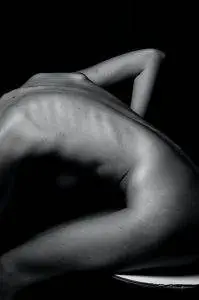
As with other autoimmune disorders, Crohn’s disease causes flares that come and go. You may have periods of time when everything seems fine, then some stress or change in your environment can trigger a flare up of IBD symptoms. Each person will have their own experience of Crohn’s symptoms:
- Diarrhea, explosive diarrhea, urgent need to go
- Stomach pain, lower abdominal pain, epigastric pain, stomach ache
- Stomach cramps, abdominal cramps, cramping
- Rectal bleeding, bleeding from anus, bloody stool
- Constipation, feeling like you can’t go or you still have to go even after you’ve gone
- Fatigue, tired all the time, chronic fatigue, low energy
- Poor appetite, not hungry
- Mouth sores, cold sores around mouth
- Red eyes, watery eyes, blurred vision, dry eyes, eye pain, sensitivity to light
- Swollen joints, joint pain, joint inflammation, colitic arthritis
When it shows up early in life, Crohn’s disease can affect a child’s growth and development. In adults, Crohn’s can cause weight loss and anemia. The chronic inflammation of the GI tract and persistent diarrhea associated with Crohn’s can impede the normal absorption of nutrients from food. Fevers, anemia, vitamin deficiencies, dehydration, and electrolyte imbalances can all become concerns for someone with Crohn’s.
Other potentially related problems can include: kidney stones or other kidney problems, urinary problems, and inflammation of the bile ducts (pericholangitis).
More serious complications of Crohn’s involve tissue damage in the gastrointestinal tract, creating open sores or ulcers. An anal fissure is when there are tears in the rectal tissue, causing bleeding from the anus. A fistula develops when tissue breaks down between sections of the intestine, or between the intestine and the bladder, or the rectal area and the vagina. A stricture occurs when a section of the intestine becomes so inflamed that the passage becomes narrowed or blocked by scar tissue. Many people with Crohn’s disease end up having surgery to help remove these blockages, also called stenosis, due to bowel stricture, or to repair fistulas that have developed in the intestines.
Diagnosis and Medical Treatment of Crohn’s Disease
Again, as with many autoimmune diseases, it can be difficult to get a clear diagnosis for Crohn’s or IBD. Many people will suffer with stomach pain and diarrhea for a long time without realizing that something deeper is going on, and there is no simple, single test to show that you have Crohn’s. If blood tests and stool tests indicate that there is no other type of infection causing the symptoms, then colonoscopy and/or endoscopy, ultrasound or CT imaging can be used so that doctors can see where the inflammation is and where the ulcerative pain is centered.
Medicine like Imodium is commonly used to help reduce the severity of diarrhea. Immunosuppressant medications, immunomodulators, or monoclonal antibodies may be prescribed to help block the immune responses causing the inflammation. Corticosteroids are often used to help reduce inflammation. These medications, used in combination, can help to reduce symptoms of Crohn’s. However, these drugs can have serious side effects. Biologics can increase the risk of serious respiratory infections and may increase the risk of certain cancers. Corticosteroids can contribute to bone loss (osteoporosis) and cause swelling in other parts of the body. Immunosuppressants can stress the liver and pancreas.
Can Acupuncture Help Crohn’s Disease?

TCM treatments have been proven to be effective for helping to reduce inflammation and relieve pain for many types of conditions, including autoimmune disorders that can be difficult to treat with conventional medicine. TCM works well to help bring relief to people with autoimmune diseases because acupuncture and herbs work upon both the physiological and emotional aspects of the illness. Crohn’s flare ups can be triggered by stress, anxiety, depression, and other mental health issues or strong emotions. Acupuncture can help to relieve stress and worry, so that they are less likely to feed into physical symptoms.
Acupuncture and moxibustion can help improve symptoms of diarrhea, stomach cramps, and epigastric pain. Through using these safe healing modalities, acupuncture practitioners are able to help people with bloated stomach, IBS symptoms, and nausea. Acupuncture treatment can also positively affect the vagus nerve in the brain, which plays an important role both in the functioning of the immune system and the parasympathetic nervous system that controls the action of the entire GI tract. Acupuncture can also positively impact the microbial bacteria that reside in the intestines, bringing them closer to normal levels.
A trial study that compared Crohn’s patients treated with acupuncture and moxibustion for 12 weeks with patients who received “sham acupuncture.” The patients who had real treatment showed significant improvement of symptoms over those in the control group.
A study to discover how electro-acupuncture treatment affects the brain-gut connection in patients with Crohn’s showed that acupuncture and moxibustion had a positive impact on activity in the hippocampus and vagus nerve areas of the brain.
Another study that looked at the chemical composition of intestinal mucosa found that acupuncture treatment helped improve the health of the lining of the intestines and reduced inflammation.
Acupuncture Near Me for Crohn’s Disease in Santa Monica, CA
Living with Crohn’s symptoms can be seriously debilitating. Chronic diarrhea and stomach pain can feel like they’re taking over your whole life. It is possible to manage Crohn’s disease symptoms without negative side effects. If you or someone you know is suffering with an IBD, or possibly an autoimmune disorder, or more than one autoimmune disease, it is worth trying TCM methods to see if they work for you.
*This article is for education from the perspective of Traditional Chinese Medicine only. The education provided by this article is not approved by FDA to diagnose, prevent, treat and cure human diseases. It should not stop you from consulting with your physician for your medical conditions. Traditional Chinese Medicine is based on Qi, which is an invisible force that usually cannot be observed by modern science. Because science focuses on testing ideas about the natural world with evidence obtained through observation, these aspects of acupuncture can’t be studied by science. Therefore acupuncture and Chinese herbs are often not supported by double-blind, randomized trials, and they are considered alternative medicine therapies in the United States.
How to Treat BPH With Acupuncture and TCM
By Qineng Tan, L.Ac., Ph.D. & Xiaomei Cai, L.Ac., Ph.D.

Men, are you getting up to pee in the night? Having trouble beginning urinating when you have to go, or the flow of urine starts and stops? These may be signs of BPH (benign prostatic hyperplasia), also known as an enlarged prostate. Many men begin to have prostate problems as they get older, including UTIs, prostate infections, and inflammation of the prostate gland. Acupuncture and TCM can help relieve prostatitis symptoms and urinary symptoms of BPH.
BPH is a very common men’s health concern. About half of all men over 60 feel some symptoms of BPH, and by the time men are in their 80s, the vast majority of men will have an enlarged prostate. Prostate enlargement or prostate infections are not necessarily signs of prostate cancer symptoms, but they can cause trouble peeing. Urinary problems due to BPH can be painful and frustrating.
In a man’s body, the prostate gland is located right below the bladder. The urethra, the tube through which both urine and semen flow out of the body through the penis, passes through the prostate. This means there is a small area of the prostate that surrounds the urethra. As the prostate grows naturally over time, or becomes inflamed due to infection or injury, this area of the prostate can press on the urethra and bladder, affecting the process of urination.
The prostate gland is a reproductive organ that produces seminal fluid, which, when combined with sperm from the testes and other fluid from the seminal vesicles, produces semen: the cloudy white fluid that comes out of the urethra through the penis when a man ejaculates. The prostate contains smooth muscle tissue that squeezes the fluid out, and small ducts that block the urethra when ejaculation happens, so that urine doesn’t come out with the semen. Seminal fluid provides nutrients and energy for the sperm, and it also interacts with the chemistry in a woman’s reproductive organs, so prostate health is really important for men’s fertility.
The prostate gland is different from most organs in that it continues to grow throughout a person’s lifetime. This enlargement of the prostate is not entirely understood by medical science, but it is believed to be due to some mechanism of men’s hormone functioning. BPH is called “benign,” because it has nothing to do with the cause of prostate cancer and does not even mean you are at higher risk for prostate cancer.
According to conventional medicine, BPH is a normal part of aging. According to TCM theory, an enlarged prostate is more likely to cause problems when Qi is weak and specific organ systems are subject to too much damp heat. Acupuncture and herbs for BPH can help to restore healthy urinary function and reduce pain and inflammation in the prostate area.
What Is BPH?
The prostate gland goes through two periods of growth: during puberty, when it doubles in size, and then from age 25 until old age. Prostate growth varies from individual to individual, but overall, the prostate grows larger at a rate of 1.5 – 2.0% per year. As the prostate is getting bigger, it can start to press on the urinary tract organs. As men get older, they may begin to feel changes that make it more difficult to pass urine.
Top 5 Signs of BPH include:
-

Frequent trips to the bathroom may be a sign of BPH or prostatitis. Trouble starting to urinate, having to strain to start peeing, hesitancy
- Feeling like you can’t completely empty your bladder, like you still need to pee
- Feeling like you need to pee more often, reduced bladder capacity
- Weak stream of urine, “start and stop” peeing, dribbling pee
- Having to get up to pee at night, nocturia
Having urine left in the bladder even after you went to the bathroom can cause bacteria to build up and lead to prostate infections, UTIs, and chronic urinary symptoms that come and go over months. Prostatitis can mean a variety of men’s health issues that cause urinary symptoms and pain that are similar to symptoms of BPH.
Prostatitis Symptoms
The term prostatitis covers a few different kinds of men’s health issues that cause swelling and pain in the male reproductive organs, including bacterial bladder infections, UTIs, bladder stones, prostate stones, or after having some sort of procedure (like a surgery, biopsy, or catheterization). It also includes CPPS, chronic pelvic pain syndrome, where there is pain in the genitals without any apparent cause.
Prostatitis symptoms include:
- Pain in the penis, testicles, or the area behind the testicles, the perineum
- Painful urination, hurts to pee, dysuria
- Urgency, frequency, feels like you have to pee all the time
- Urine flow starts and stops, weak stream of urine
- Painful ejaculation, burning ejaculation, hurts to pee after sex
- Blood in semen
- ED, erectile dysfunction
Prostate infections and related infections can be either acute (serious in the short term) or chronic (lasting a long time and difficult to get rid of). An acute bacterial infection of the prostate or urinary tract can cause painful urination, a frequent need to pee, feeling urgency to urinate, or having trouble urinating. If left untreated, this kind of infection can lead to fever, chills, and feeling seriously ill. Chronic bacterial infection of the prostate gland can cause someone to have recurrent infections and symptoms that come and go over a period of months.
Some men can have prostatitis without any symptoms; this is known as asymptomatic inflammatory prostatitis. Many men don’t realize they have this kind of inflammation in the prostate until they are trying to get their partner pregnant and go through male infertility testing. Chronic prostatitis can negatively affect sperm count and male fertility.
CPPS, pain in the prostate area or sexual organs, is thought to be related to autoimmune disorders, and/or stress. Obesity can also affect pain in prostate by adding extra pressure.
Medical Treatment for BPH and Prostatitis
When you go see your medical doctor about BPH, first they will likely do a rectal exam, which is how they can check the size of the prostate gland, and blood and urine tests to check for bladder infection, kidney infection, or prostate infection. They will also check PSA levels (prostate-specific antigen), which can indicate enlargement of the prostate. Normal PSA levels vary depending on age. If PSA levels go up significantly over a short period of time, it is considered a possible indication of prostate cancer risk, and your doctor may recommend further testing, like a biopsy.
Treatment for BPH can involve medications called alpha-blockers that relax the muscles of the bladder and prostate (Flomax). 5-alpha reductase inhibitors are drugs that affect the hormones and can cause the prostate to shrink. These medications can take a while to be effective, and for some patients, they are not particularly helpful.
There are also several types of surgery that are used to help BPH by removing parts of the prostate to help relieve pressure on the urethra, or by blocking blood flow to the prostate to prevent further growth. These surgeries are not indicated for all cases, though, and can have negative results for some men, including infections, bleeding, and ED.
Antibiotics are used to treat prostatitis and other UTIs related to enlarged prostate. These usually work well for acute infections, but not so well for chronic cases. Antibiotics are not effective for treating CPPS, which is by far the most common type of prostate problem.
Can Acupuncture Help BPH Enlarged Prostate?

TCM is a complete medical system that goes back thousands of years in China, with many written records of acupuncture points and herbal formulations used to treat all kinds of health problems. The TCM view of the organ systems of the body is a bit different from the way they are understood in western medicine. For example, TCM sees the reproductive organs as being related to the functioning of other organs, like the kidneys and liver.
The prostate is considered to be closely related to the kidney system, and if the Qi (life force energy) of the kidneys or liver is weak, excess dampness and heat can begin to build up in the lower region of the pelvic area.
TCM recognizes the strong connections between emotions and physical health. Feelings of anger and pent-up frustrations are associated with liver stagnation, while stress, anxiety, worrying, and overworking can impact the kidneys and spleen. Lifestyle habits like lack of sleep, lack of exercise, poor diet, using drugs, or overdoing sexual activities can also create conditions for men’s health issues like BPH to become problematic.
An acupuncturist will look at each individual’s situation to determine which organs are involved, and will use acupuncture points for prostate pain and Chinese herbs for prostate inflammation to help restore balance to men’s hormones and energy.
Acupuncture to treat BPH and acupuncture points for prostatitis can help to relieve difficult urination, and pain in the prostate area, without down time or negative side effects.
A clinical trial of 100 patients treated with acupuncture for BPH over the course of 6 weeks showed that over 90% of the men responded positively, reporting less pain in the prostate and improved urinary functioning.
A systematic review of eight studies involving over 650 men treated for BPH with TCM showed significant positive changes in men’s health outcomes.
A review of studies using Chinese herbs for BPH suggested that herbal treatment for BPH may work even better than alpha-blockers.
Acupuncture Near Me for BPH in Santa Monica, California
Most men will deal with BPH as they go through the aging process, but there are steps you can take to minimize prostate problems. If you are feeling pain in the prostate, urgency to urinate, peeing more frequently, or like you can’t empty your bladder completely, it might be worth it to try acupuncture and herbs to help prostate enlargement. Unlike medical treatments for BPH, there really is no downside to trying acupuncture for men’s health issues. Dr. Tan and Dr. Cai at Art of Wellness in West Los Angeles have over 30 years of experience helping men improve their fertility and sexual health.
*This article is for education from the perspective of Traditional Chinese Medicine only. The education provided by this article is not approved by FDA to diagnose, prevent, treat and cure human diseases. It should not stop you from consulting with your physician for your medical conditions. Traditional Chinese Medicine is based on Qi, which is an invisible force that usually cannot be observed by modern science. Because science focuses on testing ideas about the natural world with evidence obtained through observation, these aspects of acupuncture can’t be studied by science. Therefore acupuncture and Chinese herbs are often not supported by double-blind, randomized trials, and they are considered alternative medicine therapies in the United States.
How to Treat Alzheimer’s Disease With Acupuncture and TCM
By Qineng Tan, L.Ac., Ph.D & Xiaomei Cai, L.Ac, Ph.D.

Problems with thinking clearly or remembering things? Feeling disoriented and confused? These may be signs of Alzheimer’s disease or early onset dementia. Alzeimers is a progressive brain disorder that can cause memory loss and cognitive problems. TCM treatment with herbs and acupuncture for Alzheimer’s disease can have a positive effect on brain activity and help relieve symptoms of vascular dementia.
Dementia is a general term that refers to changes in the brain that impact a person’s ability to focus, think in an organized way, learn new things, and keep track of their normal routine. Over 5 million adults are affected with dementia, 60-80% of them due to Alzeimer’s. Most people who develop Alzheimer’s do so when they are over 65, but 5-6% of all Alzheimer’s patients develop young-onset Alzheimer’s or early onset Alzheimer’s between the ages of 30 and 60. Alzheimer’s disease is one of the primary causes of dementia; the other common types of dementia are Lewy Body dementia (LBD) and vascular dementia.
Increased forgetfulness and changes in cognitive function are not just normal parts of aging. The first signs of dementia occur due to changes in brain cell function and initially affect the part of the brain that learns new information and remembers it. While medical science has not conclusively discovered what exactly causes Alzheimer’s dementia, it is believed to be related to protein deposits called “plaques” and “tangles” developing in the brain, disrupting the communication between the brain cells and damaging nerves. Lewy bodies, are also a type of protein that can build up in the brain.
Typical treatment for Alzheimer’s involves the use of medications that affect brain chemistry, slowing down the effects of cell damage in the brain. Acupuncture treatment and the use of specific Chinese herb formulae can work as an effective and safe adjunctive treatment, helping to stimulate brain activity, improve blood circulation, and reduce inflammation in the brain to help improve the cognitive function that can be lost to Alzheimer’s and dementia.
Top 10 Early Signs of Dementia
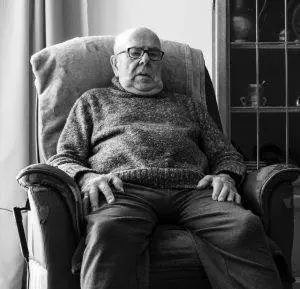
It can be difficult for a person who is beginning to show signs of Alzheimer’s disease to recognize it themselves; often, their loved ones will begin to notice changes in their behavior first. In addition to the more obvious forgetfulness and disorientation of dementia, people may notice more subtle changes in a person’s personality and behavior.
Symptoms of Alzheimer’s disease include:
-
Forgetting important things, like dates or appointments (more than just occasionally)
-
Having to ask the same question repeatedly because you can’t retain information
-
Trouble completing basic tasks that require following instructions
-
Losing track of where you are or what day or time it is, getting lost
-
Losing items, forgetting where you put something
-
Having trouble finding the right words or carrying on a conversation
-
Changes in vision or spatial perception
-
Changes in mood, emotions: anger, aggression, feeling suspicious towards others
-
Avoiding social situations
-
Progressively more difficult to walk, speak, or swallow
Signs of dementia in women can look different from signs of dementia in men. While it is often noted that people with dementia may become more irritable and take an attitude of blaming others for their forgetfulness, sometimes it may be the opposite. A person may seem more docile and easy-going. You might notice that a person is driving either more slowly and cautiously than they used to, or perhaps making more erratic decisions and moves. Having difficulty hearing when there is a lot of ambient noise, and losing one’s sense of smell can also be signs of Alzheimer’s and dementia.
The symptoms of Alzheimer’s disease tend to progress over time, while signs of Lewy Body dementia (LBD) can change more dramatically from day to day. A person with LBD may, for example, recognize their relatives sometimes, and be confused and unresponsive on other days. Having trouble walking, risk of falling, acting out dreams while sleeping, and having a blank facial expression can also be signs of LBD, although they can also be signs of another neurological disorder, such as Parkinson’s disease.
Medical Treatment for Alzheimer’s Disease
Drug treatment for Alzheimer’s disease may help a person maintain their cognitive abilities and memory longer, although it can be difficult to determine just how much a particular medication for dementia is helping, as the effects are limited and can be hard to quantify.
Cholinesterase inhibitors slow the breakdown of brain chemicals involved in memory and thinking, which can help some people with Alzheimer’s manage these symptoms for a while. For other people, these medications (such as Donepezil and Galantamine) may not help much, and they can also cause side effects like nausea, vomiting, and diarrhea. Cholinesterase inhibitors cannot be taken by people who also suffer from arrhythmia, or irregular heartbeat conditions. No medications available currently actually work to repair or reverse the damage to the brain caused by Alzheimer’s disease. Some studies, as noted below, have actually seen better results in patients receiving TCM treatments over conventional medication therapies for dementia and Alzheimer’s.
How Can Acupuncture Help Alzheimer’s Disease?
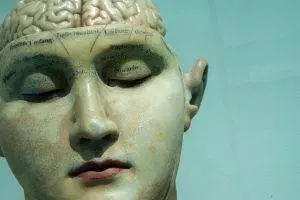
In TCM, we consider that many diseases are caused by a buildup of what we call “phlegm” in the organ systems of the body. The protein deposits in the brain referred to as “plaques” and “tangles” that seem to be the cause of dementia in older adults may be roughly analogous to the TCM concept of phlegm. Phlegm causes obstructions that block the free flow of Qi and blood through the body, causing breakdown in proper communication and cooperation between systems. There are records going back for hundreds of years of TCM herbal formulations being used to treat dementia by helping to get rid of pathogenic phlegm that blocks the meridians, or energy channels of the body.
According to TCM theory, the brain and the kidneys are closely related; the kidneys nourish the brain. If there is weakness or deficiency of Qi in the kidneys, it can lead to symptoms like dizziness, confusion, amnesia and memory problems. TCM treatment for dementia related to Alzheimer’s disease and Lewy Body dementia, will focus on strengthening the kidneys and clearing phlegm from the body.
Acupuncture treatment can have a positive effect on neurotransmitters and neurochemical activity, helping to alleviate a variety of neurological and mental health disorders. Current research is helping to show that stimulating specific pressure points can activate parts of the brain in a way that may reduce the cognitive and memory-related symptoms of dementia.
A study was done to determine if using the traditional “Four Gates” acupuncture points increased brain activity and improved cognitive function. The testing showed that patients who received acupuncture treatment in these points experienced significant changes in the cognitive-related parts of the brain versus patients who were given “sham” acupuncture.
A recent review of several studies showed that acupuncture treatment for Alzheimer’s can improve memory and cognitive function.
A review of 12 studies involving the use of acupuncture and TCM herbs to treat Alzheimer’s showed improvement in symptoms that was more effective than conventional drug treatment.
Acupuncture Near Me for Alzheimer’s in Santa Monica, West Los Angeles
It can be painful to watch a loved one struggling with dementia caused by Alzheimer’s or some other progressive neurological disease. It is best to initiate treatment for dementia as soon as it becomes apparent, so that we can help to limit the progress of cognitive decline. TCM provides a holistic way to treat each individual so that they can continue to live a full, active life. At Art of Wellness, we have over 30 years of experience helping patients with neurological conditions of all kinds.
*This article is for education from the perspective of Traditional Chinese Medicine only. The education provided by this article is not approved by FDA to diagnose, prevent, treat and cure human diseases. It should not stop you from consulting with your physician for your medical conditions. Traditional Chinese Medicine is based on Qi, which is an invisible force that usually cannot be observed by modern science. Because science focuses on testing ideas about the natural world with evidence obtained through observation, these aspects of acupuncture can’t be studied by science. Therefore acupuncture and Chinese herbs are often not supported by double-blind, randomized trials, and they are considered alternative medicine therapies in the United States.
How to Treat Seizures With Acupuncture and TCM
By Qineng Tan, L.Ac., Ph.D. & Xiaomei Cai, L.Ac., Ph.D.

Sudden loss of consciousness, convulsions or jerking body parts, staring, feelings of fear, anxiety, deja vu? These are all possible signs of seizure. Epilepsy is a chronic neurological disorder that causes different types of seizures. Research has shown that acupuncture and TCM treatment for epileptic seizures can be an effective adjunct to conventional treatment.
Epilepsy is a common disease of the central nervous system that can happen to people of all ages. Epilepsy is a term that can refer to a variety of different types of seizures; it defines a condition in which a person has recurrent seizures. Over 3 million people in the U.S. have been diagnosed with epilepsy; it is one of the most common neurological disorders worldwide.
What is the cause of seizures? Unusual electrical activity in brain cells can cause various types of seizures, depending on what area of the brain is affected. In some cases, people begin to have seizures due to a head injury, or a brain infection, such as meningitis. Some people seem to be born with an unusual brain structure that affects the area of the brain that causes seizures. In older people, symptoms of epilepsy may coexist with those of other neurological conditions, such as Alzheimer’s disease, or seizures may start occurring as an effect of having suffered a stroke or heart attack. Seizures can be caused by an allergic reaction to some food, as when a person with Celiac disease is exposed to gluten. Medical science has not yet discovered the exact meaning of seizures that occur in other cases, but it is thought to be due to genetics.
People with epilepsy need treatment to try to prevent or reduce seizures. While some seizures are mild, others can be severe, and even life-threatening. TCM has been using acupuncture treatment and herbs to help seizures for many, many years, and recent research is beginning to demonstrate how TCM as integrative care for epilepsy can be beneficial.
What Happens During a Seizure?
The signs of seizure can vary widely from person to person, but an individual’s specific pattern of what seizures look like will usually remain consistent.
Symptoms of seizure include:
- A range of changes in awareness: from staring and being unresponsive, up to totally losing consciousness
- Stiffening of the limbs, limbs twitching, or part of the body shaking
- Changes in vision: double vision, seeing flashes of light, staring, or blinking repeatedly
- Dizziness, sudden headache
- Sweating, nausea
- Having trouble breathing, or stop breathing
- Falling down for no apparent reason, sudden collapse, head nodding, muscles go limp, sometimes called “drop attacks”
- Loss of bladder or bowel control
- Feelings of anxiety, panic attack, fear
- Sense of having an “out of body” experience
- Strange taste in mouth or smelling strange smells
- Feelings of confusion
- Drooling or frothing at the mouth, biting tongue or inside of cheeks
- After the seizure, a person may feel exhausted, or have amnesia, trouble remembering what happened.
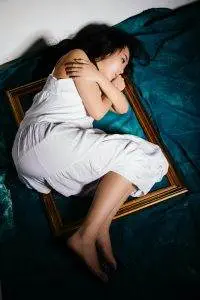
Historically, there have been many misconceptions about people who suffer from seizures, or “fits disease.” When a person is not having a seizure, they are usually otherwise healthy and capable. People with epilepsy are not necessarily limited in what they can do physically or mentally–except when they are having a seizure–,unless they have other chronic health problems in addition to epilepsy.
If you see someone having a seizure, DO stay near them and make sure they are safe. If they fall or seem to be unconscious, turn them onto their side and make sure they are breathing. DO NOT try to physically restrain a person who is having a seizure or attempt to put anything in their mouth. The idea that a person might swallow their tongue while having a seizure is a myth.
Top 10 Types of Seizures
There are many types of seizures. Sometimes a person has one one seizure caused by medication, drug withdrawal, illness, or some sort of trauma to the brain. A person may have a seizure due to an allergic reaction to some kind of medication or food. Experiencing one seizure does not mean a person is epileptic. Epilepsy is only diagnosed if a person has multiple seizures over time.
Seizures are divided into two main categories: focal onset or generalized onset. “Focal” refers to a seizure that originates from a localized part of one of the hemispheres of the brain. “Generalized” means that there is seizure-causing activity happening all over, or on both sides of the brain.
Specific types of seizure include:
- Focal Seizure with Retained Awareness – Or, “focal onset aware seizure.” Used to be known as a “simple partial seizure” or “partial seizures.” These are usually short in duration (less than 2 minutes) and a person remains conscious and aware while it is happening, although they may not be able to respond to people around them, or they seem “frozen.” The specific feelings vary widely: a sense of deja vu, sense of pressure or anxiety, a strange, overpowering smell, etc.
- Focal Onset Impaired Awareness seizure – also used to be called “complex partial seizures,” “temporal lobe seizures,” or “psychomotor seizures.” In this type of seizure, the person loses awareness of their surroundings. They may seem to be staring, zoning out, picking at their clothing, wandering aimlessly, smacking their lips, or making grunting sounds. These, too, are short in duration, and afterwards, the person may feel confused and very sleepy.
- Febrile seizures – these are seizures that are caused by having a fever over 100 degrees, usually as a result of having some type of infection, like a flu. Febrile seizure happens in young children; they may have shaking all over or jerking limbs, convulsions, or lose consciousness. Occasionally children may have febrile seizures in response to having a fever after receiving a vaccination. Febrile seizures do not cause brain damage or indicate a neurological disorder; they do not mean a person has epilepsy.
-

An absence seizure can last just a few seconds. Absence Seizure – used to be called “petit mal seizure.” This is a type of generalized onset seizure in which a person briefly loses awareness, or “blanks out” for just a matter of seconds. They are caused by abnormal brain activity, possibly related to hyperventilation. Absence seizures are more common in children, who may outgrow this disorder.
- Myoclonic Seizure – this is a very short kind of seizure that causes muscles to jerk or twitch for just a few seconds. “Myo” means muscle, and “clonus” means contraction and relaxation. These can happen to people with epilepsy, but myoclonic seizures can also happen to anyone. That feeling of being jerked awake and having a spasm in your legs when you are falling asleep is a kind of myoclonus.
- Tonic Clonic Seizure – this used to be known as “grand mal seizure.” This is the type of seizure that causes convulsions, stiff arms and legs, shaking all over, and other symptoms such as losing bladder control, crying out or making strange sounds, losing consciousness, and falling to the ground. A person who has experienced tonic clonic seizures before may notice an “aura” before the more severe symptoms of seizure begin; this might include a sense of vertigo, dizziness, nausea, feelings of anxiety, or strange smells or a weird taste in the mouth. Tonic clonic seizures may last a few minutes, and the person may be exhausted and emotional afterwards.
- Refractory Seizures or Uncontrolled Seizures – also called “drug-resistant” or “intractable” seizures, this is when a person has frequent and/or severe seizures that do not respond to medical therapy such as anti-epileptic medications.
- Lennox Gastaut Syndrome (LGS) – LGS is a rare form of epilepsy that shows up very early in life, usually when a child is still in infancy. Lennox Gastaut causes various kinds of seizures, both tonic (muscle spasms) and atonic (staring, still), or absence seizures. Children with LGS may experience multiple seizures per day, and have learning delays due to cognitive dysfunction.The cause of LGS is sometimes unknown, but it can be due to abnormal brain development, or a baby having some type of infection or loss of oxygen in utero, before they’re born.
- West Syndrome – also called “infantile spasms,” this is a type of epilepsy in young children that causes spasms and unusual movements for a baby, like throwing out of the arms, straightening the arms out to the sides, knees pulled up to the chest, the upper body bending forward, or head thrown back. West syndrome seizures only last a few seconds, and they usually go away by the time a child is past toddler years.
- Status epilepticus – This is a neurological emergency condition in which abnormal brain activity causes a prolonged seizure that lasts longer than five minutes, or multiple seizures that occur back-to-back without recovery in between. This can happen to a person who has epilepsy, or it can happen due to trauma, such as a head injury, or a hypertensive (high blood pressure) situation, or a severe reaction to drug toxicity, or an autoimmune disease response. There could be motor symptoms of shaking and collapsing, or the person could just be staring and unresponsive, depending on where the disordered activity is happening in the brain. Status epilepticus is a true medical emergency, and a person needs immediate attention to prevent brain damage.
Medical Treatment for Epileptic Seizures
Conventional treatment for seizures usually involves medications known as anticonvulsants (anticonvulsive), or anti-seizure medications. First, it is necessary for doctors to accurately diagnose the problem: what type of seizures is a person having, and what is causing them? Some drugs help to stop seizures from happening in the short term. Tranquilizers like Valium (Diazepam), Ativan (Lorazepam), and Klonopin may help to stop a seizure while it is happening, but people build up a tolerance quickly to these medications and then have to take higher doses to get the same effect. Other medications, like Aptiom, are taken daily to prevent seizures. There are many other medications used to treat different types of epilepsy, but these medications only work to control seizures in some cases. Other people may struggle to find a medication they can tolerate. Anticonvulsants and other anti-epileptic drugs can cause side effects like weakness, dizziness, headaches, nausea or vomiting, and skin rash.
People who experience seizures do need treatment to control epileptic symptoms, but it can be challenging to find the right combination of therapies. Acupuncture and TCM treatment offer an alternative treatment that may help to control seizures without negative side effects.
Can Acupuncture Help Epilepsy Symptoms?

TCM has a long history–over 2000 years–of helping people who have epileptic seizures. The first documentation of acupuncture treatment for seizures by TCM practitioners was written at least 200 years B.C.. Specific Chinese herbs to treat epilepsy have been used for many centuries, and are now being studied through scientific research to prove their efficacy. Several studies have shown that various herbal formulations help to reduce the frequency of seizures.
Data also show that acupuncture treatment can help alleviate symptoms of epilepsy, reducing the occurrence of seizures through its positive effect on neurotransmitters in the brain.
According to TCM theory, epilepsy usually arises due to problems with the Liver system. Too much Wind affecting the Liver can cause spasms or convulsions. Liver Yang Rising can lead to muscle twitching and/or dizziness. An acupuncturist will use a combination of modalities such as acupuncture treatment, electro-acupuncture, Chinese herbs, and therapeutic massage to help seizures.
As with so many health conditions, inflammation plays a role in epileptic seizures. Auricular acupuncture (ear acupuncture) and electro-acupuncture (electro-stim) may have an anti-inflammatory effect on the brain that helps to reduce the frequency of seizures.
TCM theory posits that stimulation of specific acupressure points (such as “Shenmen” points on head or ear) for epilepsy can help to calm the mind and produce a positive effect on the parasympathetic nervous system.
A recent study compared patients who received the standard medication therapy for epilepsy with those who had acupuncture treatments for 12 weeks in addition to drug therapy. At a one year follow up, the patients who had received acupuncture for seizures had a statistically significant improvement of their epilepsy symptoms compared with patients who had received only the conventional medical treatment.
Acupuncture Near Me for Epileptic Seizures Los Angeles Area
It is challenging to manage seizures, but it is possible for people with epilepsy to live a long and healthy life with minimal disruptions. Living with a chronic and unpredictable health condition like epileptic seizures can cause emotional suffering in addition to physical symptoms. The holistic approach provided by TCM and acupuncture treatment can be considered as a safe form of complementary alternative medicine for epilepsy.
*This article is for education from the perspective of Traditional Chinese Medicine only. The education provided by this article is not approved by FDA to diagnose, prevent, treat and cure human diseases. It should not stop you from consulting with your physician for your medical conditions. Traditional Chinese Medicine is based on Qi, which is an invisible force that usually cannot be observed by modern science. Because science focuses on testing ideas about the natural world with evidence obtained through observation, these aspects of acupuncture can’t be studied by science. Therefore acupuncture and Chinese herbs are often not supported by double-blind, randomized trials, and they are considered alternative medicine therapies in the United States.
How to Treat Parkinson’s Disease With Acupuncture and TCM
By Qineng Tan, L.Ac., Ph.D. & Xiaomei Cai, L.Ac., Ph.D.
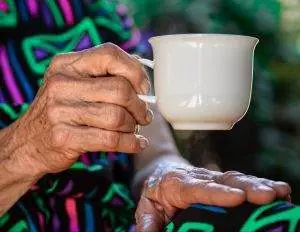
Hand tremor or shaky hands, stiffness in limbs, trouble walking, or problems with balance? These may be signs of Parkinson’s Disease (PD). Parkinsons is a progressive neurological disorder that primarily affects the brain cells that produce dopamine. Integrative care with acupuncture treatment may help relieve symptoms of Parkinson’s disease better than conventional treatments alone.
Parkinson’s disease is a neurological disorder that causes damage and dysfunction in brain cells, so that communications between the brain and the body don’t work the way they usually do. Sometimes a range of symptoms similar to those experienced by people with Parkinson’s occurs due to small strokes that affect the blood supply to the brain. This condition is called vascular parkinsonism.
More than ten million people are currently living with Parkinson’s disease worldwide. The chances of having PD increase with age, and men are more likely to have Parkinson’s than women. Early onset Parkinson’s can occur in people under 50. While it is often considered a movement disorder that causes hand tremors and other problems with mobility, Parkinson’s disease can cause less obvious symptoms, too.
Parkinson’s disease causes both “motor” and “non-motor symptoms;” the motor symptoms include physical problems like trembling hands or hand shaking, stiffness in the arms and legs, and trouble with balance when walking. The non-motor symptoms may include cognitive problems with memory, foggy-headedness, and trouble sleeping. It might even seem like a person’s personality and social behavior change, because they have trouble speaking and making their usual facial expressions.
Neurological diseases like Parkinson’s can slow the production of chemicals usually produced by the nervous system, including both dopamine and norepinephrine, a chemical that constricts blood vessels to raise blood pressure. It may be this lack of norepinephrine that causes some of the symptoms of Parkinson’s, such as low blood pressure, digestive problems, and fatigue.
Parkinson’s is a progressive disease, which means that people with PD go through stages as the condition affects more and more brain cells. In the early stages, the motor symptoms are mild and may only occur on one side of the body. In the later stages, a person may not be able to perform basic daily activities like getting dressed, eating, or walking without assistance.
What causes Parkinson’s disease? Medical science does not currently have an answer for why the brain cells become damaged or die in people with Parkinson’s. Scientists have observed that patients with Parkinson’s often have unusual clumps of a protein (alpha-synuclein) in their brain cells; these are called “lewy bodies” (lewy body parkinsons). These may be causing mutations in the cells that impair their ability to produce dopamine and other neurochemicals. Genetics, aging, and toxins in the environment or diet may all play a role in the development of Parkinson’s.
Conventional treatment for Parkinson’s involves finding a combination of medications that may help to reduce tremors and stiffness, and the myriad other symptoms a person with PD may experience. TCM offers an effective and safe adjunctive Parkinson’s treatment. Acupuncture treatment is widely accepted as a way to help relieve pain and nausea related to all types of diseases. TCM treatment can also have a positive effect on neurochemical activity, increase dopamine levels, help improve motor function and gait, and relieve fatigue.
Top 10 Symptoms of Parkinson’s Disease

The early signs of Parkinson’s are generally related to movements of the body, like feeling stiff when getting up or mild hand tremors. People may not realize that other symptoms, like low blood pressure and dizziness, are also related to early stage Parkinson’s. The most common symptoms of Parkinson’s disease include:
- Tremor – a small, involuntary shaking movement occurs most often in the hands, but can also be in a finger or thumb, or the chin. Sometimes called static tremor or resting tremor.
- Trouble moving or walking – limbs may feel stiff or rigid, there may be hip pain or shoulder pain. Most noticeably, the arms may not swing naturally when a person walks, or a person may shuffle, feeling it is hard to lift their feet off the floor. Movements that have been automatic for one’s whole life become challenging.
- Dizziness – fainting or feeling dizzy when you get up from sitting or lying down. This happens due to a sudden drop in blood pressure called orthostatic hypotension. A general feeling of weakness, feeling lightheaded, foggy headed, headache, blurred vision, and difficulty thinking or concentrating, and memory problems.
- Change in handwriting – this symptom is called micrographia, and it refers to a noticeable difference in a person’s writing, as they make smaller letters and the words are crowded closer together.
- Loss of smell, loss of taste, loss of appetite – many people with Parkinson’s develop an inability to smell in the early stage of the disease, known as olfactory loss. This can also affect a person’s ability to taste foods, which can lead to loss of appetite. Some medical theories suggest that Parkinson’s may begin in the olfactory region of the brain.
- Disturbed sleep, sleep disorder – sleep problems might simply be trouble falling asleep or trouble staying asleep, but they may also involve a lot of movement, or “tossing and turning,” or even talking in your sleep, crying out or yelling due to vivid dreams. Restless leg syndrome, when the limbs jerk, or leg cramps, may also be caused by Parkinson’s.
- Constipation, nausea, or trouble swallowing – cell damage in the gut may actually be one of the first symptoms of Parkinson’s, causing gastrointestinal problems due to slower movements of the smooth muscles of the digestive tract. Feeling nauseous or having a bloated stomach happens when the contents of the stomach empty too slowly into the intestine.
- Changes in the voice – people may notice that your voice sounds hoarse, weaker or more quiet than usual. This can be due to both motor and non-motor problems of PD, related to difficulty swallowing, sore throat due to heartburn, sensation of choking or food stuck in throat. It is also related to cognitive difficulties that make it harder to think of words, causing slow speech, or in other cases, talking too fast to be understood. Sometimes it may seem that a person with Parkinson’s doesn’t feel like talking much.
- Changes in facial expression – called “facial masking,” some people with Parkinson’s will find people asking them if they are upset because the expression on their face looks very serious, sad or angry, or they appear to be staring. This happens because of decreased motor function of the muscles of the face.
- Changes in posture – people with Parkinson’s may begin to hunch over while sitting, with shoulders hunched forward, or assuming a “stooped” posture while standing or walking. Again, this is due to a lack of communication between the brain and the muscles. This hunched posture can affect deep breathing, and increase the risk of falls.
Parkinson’s symptoms are complex, and vary widely from person to person. People with Parkinson’s are often subject to feelings of depression and anxiety, as well. Treatment for Parkinson’s symptoms requires a multipronged approach that addresses each individual patient’s physical, emotional, and mental health.
Medical Parkinson’s Treatment
When treating Parkinson’s, doctors will often try various combinations of drug therapy, some of which aim to replace dopamine, to help relieve tremors and other motor symptoms of PD. Levodopa/Carbidopa (or Sinemet) is a combination medication that creates a controlled release of dopamine. This can help to alleviate some symptoms, but the symptoms return when the medication is not in the bloodstream. Unfortunately, this medication can cause side effects like nausea and vomiting, and people will often need to take larger doses to get the same effect as the disease progresses. Long-term use sometimes causes dyskinesia, or involuntary movements of the limbs. Doctors may then prescribe another medication, such as Amantadine or Gocovri, to help mitigate these effects, or to help stave off motor symptoms during “off” times when the dopamine-replacing drugs wear off.
Patients with Parkinson’s will often be given other medications to help with problems like constipation, high blood pressure, sleep problems, pain, and depression. TCM and acupuncture offer a holistic way to treat many of the symptoms of Parkinson’s at the same time, without so many drugs and their potential side effects.
How Can Acupuncture Help Parkinson’s?

Part of TCM theory involves the concept of Ben and Biao, or “Root and Branch.” We observe that the expression of illness in the body is like the system of roots and branches of a tree. The branches show us the outward symptoms, while the root of the disease is hidden deeper under the surface, where we can’t see it. In order to treat the symptoms of any illness, we study the branches to find out where the problem originates, then we go to the root of the problem to solve it. We do this with a combination of acupuncture, herbs, and other modalities like moxibustion, cupping, and tuina massage. These TCM treatments allow us to address problems in the organ systems of the body, where lie the roots of illness, while at the same time, helping to relieve the pains and uncomfortable symptoms occurring in the branches.
Parkinson’s disease is considered by TCM philosophy to occur due to deficiencies in the root, which cause excess in the branches. Deficiency of the kidney, liver, spleen, blood and Qi (root problems) contribute to heat, phlegm, stasis, and wind in the limbs (branches). Tremors in the hands, and changes in facial expressions and movements are caused by Wind and Phlegm. According to TCM, Wind causes problems, often in the upper body, that come and go, such as stiffness, spasms, facial tics, and shaking of the limbs–like the wind shaking the branches of a tree. Wind can also cause symptoms like ringing in the ears (tinnitus), sudden headaches, and hives. Phlegm, which blocks the energy channels of the body, disrupts the smooth flow of blood and Qi to the limbs, creating a sense of stiffness, heaviness in the limbs, resistance to moving or speaking, staring, heavy feeling in the chest, and lack of coordination.
Acupuncture treatment for Parkinson’s disease, then, focuses on clearing heat, wind, and phlegm, strengthening and nourishing the blood, and getting the Qi moving smoothly again.
When we use acupuncture and herbs to help Parkinson’s, we see changes occurring in the neurochemical activity of the brain.
One study looked at the changes in neural response in the brain immediately after acupuncture treatment. This study concluded that after 8 weeks of treatment, patients with Parkinson’s showed significant improvement in brain function.
Another clinical study showed that acupuncture helped to increase levels of Tyrosine hydroxylase, a brain chemical involved in the production of dopamine.
TCM herbal formulas have also been clinically demonstrated to help relieve Parkinson’s symptoms like speech problems, tremors, and gait disturbances.
Research has shown that using TCM herbs to treat Parkinson’s is a safe and effective adjunctive therapy to conventional medical treatment.
Acupuncture Near Me for Parkinson’s Disease Santa Monica Westside

The goal of treatment for Parkinson’s is to slow down the progression of the disease and do what we can to maintain mobility and cognitive function. The sooner we begin treating Parkinson’s disease with acupuncture and TCM methods, the better chance we have to limit the effects of the disease and help patients stay active. If you or someone you love has Parkinson’s, consider adding a TCM doctor to your health care team. Integrative treatment for Parkinson’s with acupuncture and herbs can help treat Parkinson’s naturally.
*This article is for education from the perspective of Traditional Chinese Medicine only. The education provided by this article is not approved by FDA to diagnose, prevent, treat and cure human diseases. It should not stop you from consulting with your physician for your medical conditions. Traditional Chinese Medicine is based on Qi, which is an invisible force that usually cannot be observed by modern science. Because science focuses on testing ideas about the natural world with evidence obtained through observation, these aspects of acupuncture can’t be studied by science. Therefore acupuncture and Chinese herbs are often not supported by double-blind, randomized trials, and they are considered alternative medicine therapies in the United States.

